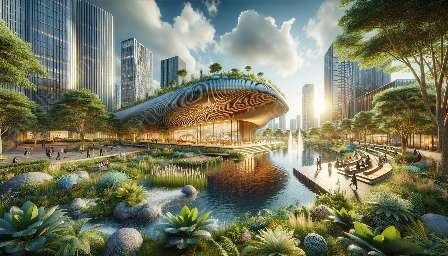Modern architecture conservation represents a harmonious blend of preserving historical and cultural heritage while embracing contemporary design principles. The conservation and preservation of architectural wonders offer glimpses into the past while inspiring innovative solutions for the future.
Understanding Modern Architecture Conservation
Modern architecture conservation refers to the comprehensive approach in safeguarding, restoring, and sensitively adapting modernist structures and designs. It encapsulates a diverse array of techniques and ethical considerations that aim to reconcile past achievements with the evolving needs of contemporary societies.
The Compatibility with Architectural Preservation
Architectural preservation denotes the practice of protecting and maintaining buildings and structures of historical significance. Modern architecture conservation aligns with this ethos by integrating the preservation of modernist landmarks within the broader framework of heritage conservation.
Embracing Design in Conservation Efforts
Architecture and design play crucial roles in modern conservation efforts, where the creative fusion of preservation techniques with contemporary design elements yields sustainable solutions that breathe new life into historical spaces.
The Importance of Modern Architecture Conservation
The critical role of modern architecture conservation extends beyond mere aesthetics. It fosters a deeper understanding of the cultural, social, and technological advancements of the past, while stimulating innovative thinking for modern design practices.
- Preserving Historical Significance: By conserving modernist buildings, we honor the visionaries of the past and maintain their contributions to architectural history.
- Sustainable Adaptations: Integrating sustainability measures within conservation projects can ensure the longevity of modern structures while minimizing environmental impact.
- Educational Value: The preservation of modern architecture provides educational opportunities for future generations, offering insights into design evolution and societal progress.
Innovative Approaches to Modern Architecture Conservation
Several innovative approaches have emerged to address the complex challenges associated with modern architecture conservation. These include:
- Adaptive Reuse: Transforming old structures into new functional spaces, such as repurposing industrial buildings into modern residences or businesses.
- Technological Advancements: Leveraging cutting-edge technologies like 3D scanning and virtual reality to document and analyze modernist structures, aiding in their preservation.
- Inclusive Community Engagement: Involving local communities in conservation initiatives fosters a sense of pride and ownership, ensuring the sustainability of preservation efforts.
Concluding Thoughts
Modern architecture conservation stands at the crossroads of preserving the past and innovating for the future. By integrating architectural preservation principles with contemporary design sensibilities, we pave the way for a sustainable, culturally rich built environment that honors history while embracing progress.

